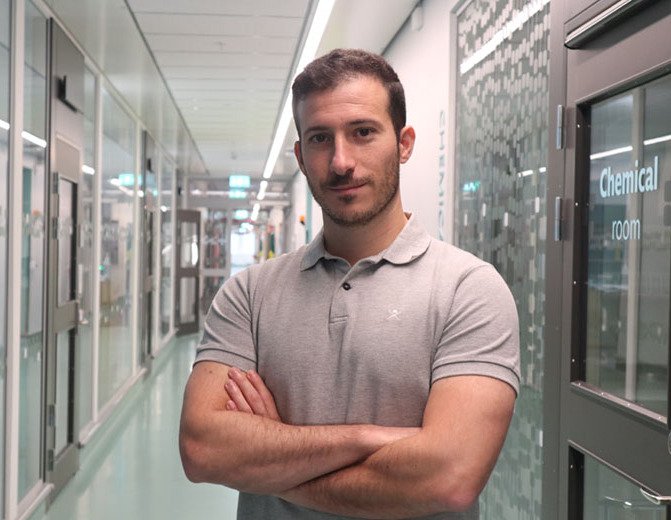Researchers at the Department of Medicine, Huddinge, have presented new research on how some people with HIV can control the virus without treatment. The results show that gut bacteria and a specific dipeptide can play an important role and open up new ways to prevent HIV.
At the 23rd European Conference on HIV and Hepatitis 2025, researchers Xiangning Bai and Rafael Cena Diez from the Department of Medicine, Huddinge , were selected to present their research. Both are active in Anders Sönnerborg's research group and they presented new findings on so-called "elite controllers", people living with HIV who can keep the virus in check without antiviral treatment.
Link between HIV control and gut microbiota
Xiangning Bai's research analysed the gut microbiota of these elite controllers using deep shotgun metagenomic sequencing and updated microbiome pipelines. This has not been done before and a clear and robust association was found between HIV control and previously unknown bacterial species. The findings build on previous research by Anders Sönnerborg's group, where a dipeptide called WG was found to be elevated in both the blood and faeces of elite controllers and to have an inhibitory effect on HIV.

"We now want to find out whether the newly discovered bacteria can produce WG or other metabolites/substances that contribute to virus control," says Xiangning Bai.
Xiangning's research may provide greater insight into the interaction between the bacteriome and the virome in the intestinal flora and whether certain new bacteria can contribute to immunological or direct protection against viruses, in this case HIV.
Potential route to new preventive treatments
Rafael Cena Diez presented a method he optimized and introduced at ANA Futura Lab, using cervical tissue from women without HIV to test how WG affects infection. The results show that the dipeptide strongly inhibits HIV infection in the tissue, without damaging the mucosa.

"This gives us a basis for developing a microbicide - a protective agent - that can be used to prevent HIV and other sexually transmitted infections," says Rafael Cena Diez.
Both Rafael's and Xiangning's research is part of an EU-funded project and could eventually contribute to new ways of strengthening women's sexual health through localised prevention.






